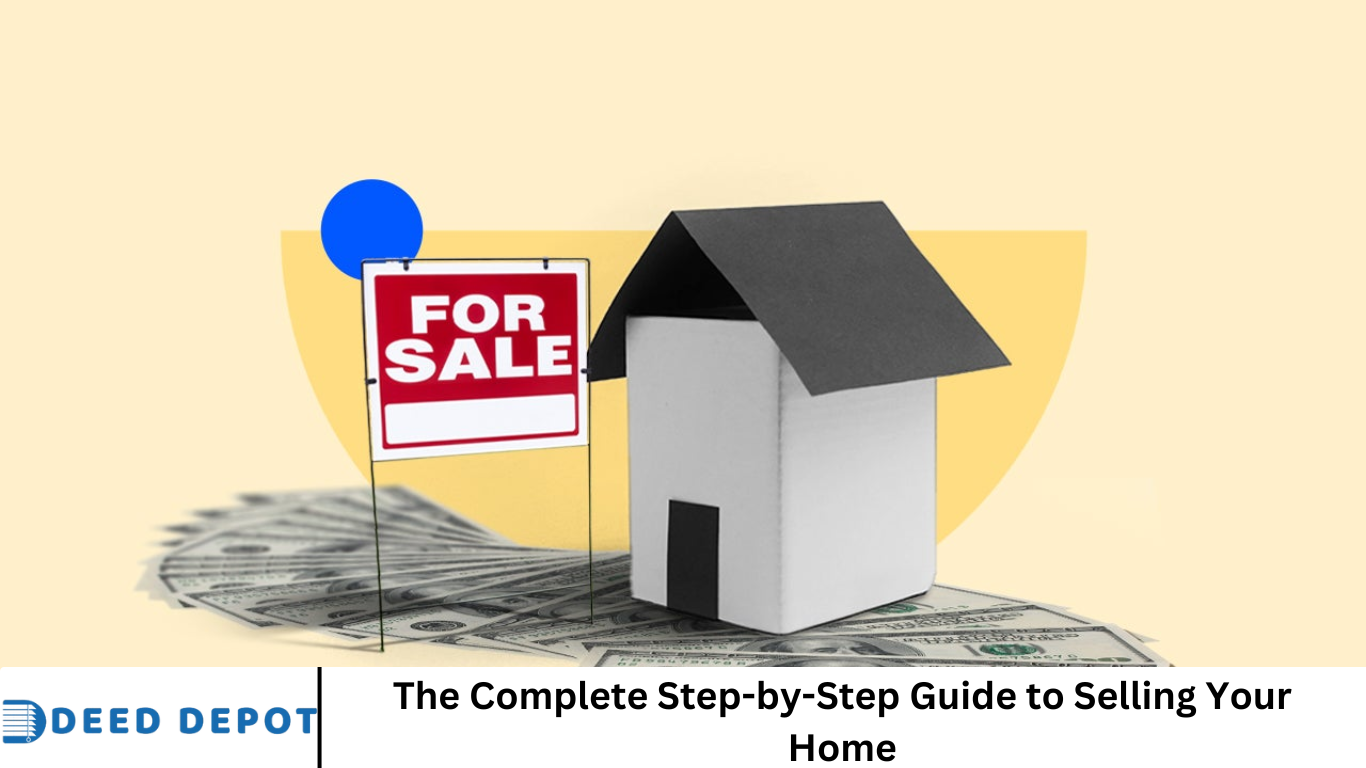Selling your home is one of the biggest financial decisions you will ever make. Whether you’re upgrading, downsizing, relocating, or simply ready for a change, knowing exactly what to expect can make the process smoother, faster, and more profitable.
This complete step-by-step guide will walk you through everything you need to know about how to sell your home, from preparation to closing the deal.
More Read: Winning the Bidding War: Proven Strategies to Secure Your Dream Home
Step 1: Decide if You’re Ready to Sell
Before diving in, ask yourself:
- Why are you selling?
- What’s your timeline?
- Can you afford to buy and sell at the same time?
Selling your home involves not just moving out but potentially dealing with mortgages, bridging loans, and other financial commitments. Make sure it aligns with your current financial and life goals.
Step 2: Assess the Market
Understanding the housing market in your area is critical. Are prices trending up or down? Is it a buyer’s or seller’s market?
Tips:
- Check recent sale prices in your neighborhood
- Use online property portals like Rightmove or Zoopla
- Speak with local estate agents for insights
Knowing the market helps you price your home competitively and set realistic expectations.
Step 3: Choose How to Sell
You have several options:
- Estate Agent: Most common, they handle marketing, viewings, and negotiations.
- Online Estate Agent: Cheaper but more hands-off.
- Private Sale: You do everything yourself, saving fees but increasing your workload.
Tip: Look for agents with a good track record in your area. Check reviews, ask for references, and compare commission rates and services.
Step 4: Set the Right Asking Price
Pricing is everything. Set it too high and you risk scaring off buyers; too low and you might lose out on potential profit.
How to determine the price:
- Get 3-5 valuations from estate agents
- Compare with similar properties in your area
- Factor in market conditions and property condition
Remember, your asking price is a starting point—it’s normal for buyers to negotiate.
Step 5: Prepare Your Home for Sale
First impressions count. Preparing your home can significantly impact its perceived value and how quickly it sells.
Checklist:
- Declutter and deep clean every room
- Fix minor repairs (leaky taps, squeaky doors)
- Freshen up with a coat of paint
- Improve curb appeal (mow lawn, clean windows)
- Consider staging key areas (living room, kitchen, master bedroom)
Professional photography is a must—it’s the first thing buyers see online.
Step 6: Market Your Property
Now it’s time to get the word out.
Marketing strategies:
- List on top property portals
- Share on social media
- Create a compelling listing with high-quality photos and a strong description
- Use “For Sale” signs
An experienced estate agent will manage most of this, but you can boost visibility by promoting the listing through your own channels.
Step 7: Host Viewings and Open Houses
Once your property is listed, be ready for viewings. These can be in-person or virtual.
Tips for successful viewings:
- Keep the home clean and tidy at all times
- Create a warm atmosphere (lighting, temperature, scents)
- Be flexible with viewing times
- Let your estate agent handle the tour to avoid awkward questions
Step 8: Receive and Negotiate Offers
Offers will begin to roll in—hopefully more than one.
Negotiation tips:
- Don’t accept the first offer too quickly
- Consider the buyer’s position (cash buyer, chain-free, mortgage pre-approved)
- Be open to negotiation but know your bottom line
Your estate agent can help guide you through the back-and-forth process to get the best deal.
Step 9: Accept an Offer and Instruct a Solicitor
Once you accept an offer, the legal process begins.
What your solicitor will do:
- Draft the contract
- Handle searches and title deeds
- Coordinate with the buyer’s solicitor
Make sure you choose a solicitor experienced in property transactions. Delays often happen during this stage, so good communication is key.
Step 10: Exchange Contracts
This is the moment the sale becomes legally binding. A completion date is set and both parties sign the contract.
Important:
- You must move out by the agreed date
- If either party pulls out after this point, there may be legal and financial consequences
Ensure your finances and moving plans are in order before exchange.
Step 11: Complete the Sale
On completion day, the buyer’s solicitor transfers the funds, and the keys are handed over.
To-do list:
- Final meter readings
- Inform utility companies and change your address
- Hand over keys to the estate agent or solicitor
Once funds are received, your solicitor will pay off your existing mortgage and send you the remaining balance.
Step 12: Celebrate and Move On
Congratulations! You’ve successfully sold your home. Whether you’re moving into your next dream home or taking time to find your next place, selling your house is a major accomplishment.
Final tips:
- Keep all documentation related to the sale
- File any tax information if applicable
- Reflect on lessons learned for future property transactions
Frequently Asked Question
How long does it take to sell a house from start to finish?
Typically, selling a home takes between 8 to 14 weeks, depending on the local market, buyer demand, and whether you’re part of a property chain. Delays can occur during legal checks, surveys, or if complications arise in negotiations.
What documents do I need to sell my home?
You’ll need:\n- Proof of identity (passport or driver’s license)
- Title deeds or land registry documents
- Energy Performance Certificate (EPC)
- Property information forms (TA6, TA10, etc.)
- Fittings and contents form
- Mortgage details if applicable
Do I need an estate agent to sell my home?
No, but using a licensed estate agent can streamline the process, help with pricing, and attract more buyers. You can also opt for online agents or a private sale if you’re confident handling viewings, negotiations, and paperwork.
How should I price my home correctly?
Get 3–5 valuations from local agents, compare similar properties online, and consider market conditions. Overpricing can turn buyers away; underpricing may cost you money. Aim for a competitive but realistic figure.
What costs are involved in selling a home?
Typical costs include:
- Estate agent fees (1%–3% of sale price)
- Solicitor/conveyancing fees (£500–£1,500)
- EPC certificate (£60–£90)
- Removal costs
- Mortgage exit fees (if applicable)
Can I sell my house while buying another?
Yes, but it can be complex. You’ll need to synchronize both transactions, which may require chain coordination, bridging loans, or making your sale chain-free by selling first and renting temporarily.
What can I do to make my home more appealing to buyers?
Focus on:\n- Decluttering and deep cleaning
- Minor repairs and fresh paint
- Enhancing kerb appeal
- Staging key rooms
Professional photos and a welcoming atmosphere during viewings can significantly improve buyer interest.
Conclusion
Selling your home doesn’t have to be stressful. By following this step-by-step guide and staying informed at every stage, you’ll boost your chances of a successful, stress-free sale. Whether it’s your first sale or your fifth, preparation, pricing, and patience are key to getting the best result. If you’re ready to take the first step, start by assessing your readiness to sell and speak to a local expert today.


